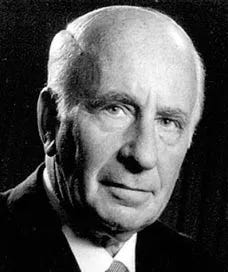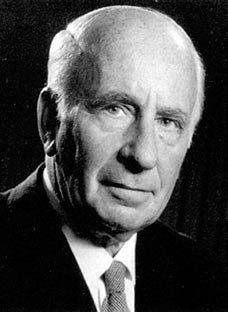Dürckheim’s Nazi Years
Karlfried Graf Dürckheim, wartime propagandist for the Third Reich, perpetrated the same violence as Rosenberg on his people. Dürckheim’s taste for such ideological violence did not emerge as a reaction to the Nazi party’s ascent in Germany. Nor was his talent for propaganda made manifest simply by obeying orders with which he disagreed. Dürckheim’s allegiance with Nazi ideology instead emerged from a longstanding interest in ideas common to the Weimarian right-wing cultural milieu.1
After fruitful experiences of death and conflict in WWI, where Dürckheim discovered the suicidal joys of ‘embarking upon a nightly assault on a wooded hill’ or ‘jumping through a defile under machine gun fire,’ and indulged in the strange ‘pleasure’ of ‘deliberately thrusting oneself into deadly danger’ where he felt ‘free,’ ‘indestructible’ and as if his life had great meaning, and again in 1919 where a Spartacist firing squad nearly executed him during the Bavarian Revolution,2 Dürckheim spent his interwar period refining ideas that would later justify the Nazis’ activities. In the years after these personal traumas and Germany’s humiliating defeat in WWI, Dürckheim began his ‘spiritual training’ in psychology and philosophy.3 He and his wife also befriended another couple, the Weinhandls, and together they formed a group called ‘The Square’ dedicated to intellectual discussions of spirituality, culture and Germany’s future. Whatever the cinereal density and synaptic capacity of their club, their interests were largely unexceptional. Echoing others in their social sphere they saw an opportunity in the breakdown of Germany’s traditional social structure. Instead of disaster they believed it could revitalise humanity and produce a type of ‘new man.’ Dürckheim himself was especially preoccupied with the idea of the ‘new man’ and he wrote in his diary of how he often pondered this question ‘that in the years after the war everyone was concerned with.’
The left saw the emergence of this new humanity in socialism; the right believed it would come from völkisch politics. Belonging to the cultural right-wing, Dürckheim and his Square were keen proponents of völkisch thought. Like Rosenberg, Dürckheim saw Meister Eckhart as a forerunner of völkisch thought. Eckhart was his ‘master, the master’ and he deemed him Germany’s ‘most original proclaimer of God.’4 Others in his circle wrote and spoke extensively of a völkisch religiosity, positing that the new man would emerge if Germans returned to ‘the primitive man of pre-modern culture’ and rediscovered the ancient, shared truths underlying all world religions. Extending their völkisch interests, members of the Square concerned themselves with the notion of ‘holism,’ a 1920s intellectual movement that sought to reintegrate man into his larger, natural whole but which inevitably justified humanity’s systems of oppression. Dürckheim himself was particularly interested in holism and holistic psychology, working for a time in Felix Krueger’s Institute of Psychology at the University of Leipzig, an academic department long ‘considered to be a “völkisch cell” with a strong nationalistic bias.’ Most damningly, Dürckheim also ‘thought very highly’ of Hitler’s Mein Kampf.
Dürckheim’s varied interests, from religion, psychology to social reform, slowly developed while Hitler’s Nazi Party rose to power. The whole time, his beliefs moved in tandem with those espoused by Nazi leaders and he grew to support the cause. When Hitler’s reign began, Dürckheim was delighted, both politically and spiritually. With the ascendance of Hitler’s Nazis, Dürckheim was persuaded that the ‘new man’ had finally appeared on Germany’s horizons. ‘Through Adolf Hitler,’ he wrote, ‘the Gods have given to the German People… the power to awaken fellow Germans’ and ‘transform them towards this new man.’ Propelled by this enthusiasm Dürckheim joined the Nazi Party as soon as Hitler took office.
Dürckheim soon became a Nazi ideologist and propagandist, and he wasted no time corralling his disparate ideas into a derivative and unoriginal defence of Nazi politics. Like Rosenberg and Hitler, Dürckheim believed race conditioned the individual’s soul; the Volksgemeinschaft was also the basic social unit. He also thought that after decades of degeneration and dissolution Hitler’s ‘wake-up call’ had reunited the German Volk ‘and renewed the basic values of its life.’ Seeing the grand opportunities latent in this revival he felt an ‘unshakable belief in the German Volk’ was necessary and lambasted people that cared ‘about individuals’ and ‘lost sight of the superior whole.’ Germans had a holy duty, he said, to ‘maintain the racial substance and protect it against any danger.’ He also valorised the ‘fighter driven by fanatic faith’ whose soldiership could realise the German mind’s full potential.
Dürckheim was an avid Nazi. For him it was a doctrinal truth that a unifying ‘race soul’ existed. It was also essential that Germany manifest its race soul no matter the cost. Driven by his fervent convictions, Dürckheim quickly ascended the ranks of the Nazi party, eventually becoming chief assistant to Joachim von Ribbentrop, Germany’s wartime Foreign Minister and the first war criminal hanged at Nuremberg in 1946.
Herr Dürckheim’s talents matched his ambitions during the period of Nazi rule. One might say that he was manifesting his potential. But an unfortunate complication arose for him in 1937. He discovered he was part Jewish.
Dürckheim’s political ambitions within Germany were shattered. Jews, of course, could not hold public office. Not wanting to waste this committed Nazi’s talent or commitment, Dürckheim’s superiors made him an offer. He could not remain in Germany, they said. But he could continue to support the Nazi cause abroad. Though Dürckheim’s genetics had betrayed him—the belief system he shared with his regime now designated him as something less than human that deserved extermination and subjugation—he remained utterly loyal to the Nazi cause. He consented to his reassignment and left for Japan in 1938.5
Dürckheim in Japan
In Japan Dürckheim deepened his support the Nazi regime. Employing his intellectual talents he tried to build an ideological alliance between the nations based on völkisch ideology. A German academic, Dr Dietrich Seckel, paid witness to his activities. Seckel apparently received copies of Dürckheim’s speeches and writings each day in the mail, and described him as an ‘excellent propagandist who, possessed of a high intellectual level, travelled throughout Japan teaching Nazism and the ideology of the Third Reich.’ Dürckheim also insisted that he worked ‘day and night’ to achieve this momentous ideological task. Abiding by the same kind of work ethic we observed in Kanye, Bowie and Peterson, he garnered such a reputation that Germans in Japan called him the ‘Rosenberg of the East.’6
Ever fastidious, Dürckheim did not merely promote Nazi ideology in Japan. Dürckheim was immensely impressed with the Japanese, who, with their ‘iron will to self-realisation,’ he saw as a kind of spiritual relative of the Germans. The Japanese were ‘one if not the exemplary Volk,’ he believed, so he concluded that Germans should study Japan’s völkisch culture to improve their nation. The collectivist tendencies of Japanese ideology especially appealed to him. Echoing Hitler,7 [2] Dürckheim reserved special praise for the Japanese ‘cult of the Emperor-God’ that helped them remain unified and strong throughout the ages. He also took an interest in Zen Buddhism, a cultural practice he believed could establish a direct relationship to the race soul. Based on his encounters with Zen he enthused about the possibility of a kind of ‘völkisch satori’ that would awaken the individual’s race consciousness. Zen racism quickly became his specialty and obsession. Manic energy animated him as he worked to promote this synthesis of two violent, fascist political imaginaries.
Before he left for Japan, Dürckheim was a committed Nazi. And a committed Nazi he remained while he worked abroad as a propagandist. Even though he had Jewish ancestry he was eventually recognised as a valuable supporter of Nazi Germany’s racist ambitions, earning the War Merit Cross in April 1944. Until the war’s end, then, Dürckheim remained a true believer of the völkisch cause. But all this would soon change. In little over a year after he received his award the war ended. Hitler shot himself through the head in his Berlin Führerbunker. The Third Reich fell. Auschwitz was exposed to the world. America obliterated Hiroshima and Nagasaki with their atomic bombs. And Dürckheim was locked in the Tokyo jail cell where his intellectual revolution and spiritual rebirth began. Despite his commitment to völkisch ideology it would not be long until he was reborn as a dispensary of ‘life-giving wisdom.’ No matter how radically he changed, though, Dürckheim lived in the shadow of his decades-long commitment to intellectualised racist hatred. Adumbrated by his Nazi past the form of his thought would prove to be static and unchanging. Though he tried to elide his history, the architecture of his beliefs transcended his commitment to Hitler’s regime. Fascist or liberal, something within him persisted beyond the death of the regime he so passionately loved.
→ The Way of Conservation (Pt IV)
Footnotes
In this section, all information and quotations are derived from Baier, K. (2013) The Formation and Principles of Count Dürckheim’s Nazi Worldview and his Interpretation of Japanese Spirit and Zen. The Asia-Pacific Journal, 11(48), pp.1-33.
See his author biography in Zen and Us.
See his author biography in Zen and Us.
Another small complicity between neoliberalism and fascism: author of contemporary self-help/spirituality bestseller The Power of Now, Eckhart Tolle, named himself after Meister Eckhart.
This is Baier’s account of Dürckheim’s history, which is based on Dürckheim’s own statement that he was sent to Japan when he became ‘politically embarrassing’ for the Nazi government. But in a review of Baier’s article, Hans-Joachim Bieber presents an alternative account and insists that Dürckheim went to Japan at his own request. In any case, it is true that Dürckheim had Jewish ancestry and that he left for Japan. See Joachim-Bieber, H. (2015) Zen and War: A Commentary on Brian Victoria and Karl Baier’s Analysis of Daisetz Suzuki and Count Dürckheim. The Asia-Pacific Journal, 13(20), p.8.
Joachim-Bieber, H. (2015) Zen and War: A Commentary on Brian Victoria and Karl Baier’s Analysis of Daisetz Suzuki and Count Dürckheim. The Asia-Pacific Journal, 13(20), p.10.
Apparently, Hitler once said: ‘You see, it’s been our misfortune to have the wrong religion. Why didn’t we have the religion of the Japanese, who regard sacrifice for the Fatherland as the highest good?’





